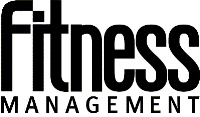A weight falls on Joe’s head when his trainer looks away. Mary falls off of the back of the treadmill when the belt skips. LuAnn falls on her tailbone in the locker room because the floor was wet. You’re liable, right? Yup, likely. If you’re going to be sued, it’s likely because a member got hurt.
But, what if it isn’t an injured member who is going to sue? What if it is a competing fitness center? What if it were your employees, right under your nose, day after day, who were saying things that caused your facility to be sued?
The situation goes like this: A prospective member comes through your doors, and she is directed to speak with a salesperson. The prospect says that she has been considering a number of fitness centers in the area, and has narrowed it down to either yours or a competitor’s down the street. To counter interest in your competitor, the salesperson informs the prospect that it’s probably not a good idea to consider the other facility, because it is in financial trouble and likely to soon go out of business. Bingo, the sale is yours! But, since the competitor isn’t really in any financial trouble, has there been any wrong doing in this situation? And, if so, who is liable? The stupid salesperson who said all those things, right? Nope.
You are liable for what your employees do. Always? No. But, in a situation like this, yes. It’s called vicarious liability, which is commonly applied to the employee/employer relationship, according to information on LegalMatch.com. There is also a legal doctrine referred to as “respondeat superior,” which is Latin for “let the superior answer,” which says that an employer is legally responsible for the actions of its employees if the employee is acting within the course and scope of employment. If that salesperson was carrying out company business, which he or she was, then that salesperson is acting on the employer’s behalf.
This situation, although not the exact details I describe above, is real. On Dec. 9, 2008, B&R Family Fitness in Feasterville, Pa. (in Bucks County), filed suit against California-based L.A. Fitness’ Huntington Valley location “for interfering with B&R’s prospective business relationships by disseminating falsehoods to potential B&R clients.” It all began when B&R heard rumors that L.A. Fitness, a neighboring fitness center, was spreading rumors about B&R going bankrupt and closing. B&R hired a private investigator to pose as a potential customer. The investigator claims within the lawsuit that “L.A. Fitness employees attempt to dissuade prospective B&R customers by telling them that B&R has declared bankruptcy, is close to declaring bankruptcy, or is otherwise having significant financial problems.”
But, B&R Family Fitness says it does not have any financial problems, and poses no risk to potential clients. In fact, the facility was voted in 2008 as a “Best in Bucks” Philadelphia Inquirer Readers’ Choice Awards winner. Even if B&R were to go out of business, the business is bonded, and members would be refunded for any time remaining on their membership contracts.
Management at this L.A. Fitness location may or may not have known about what their salepeople were saying. That doesn’t matter. And, L.A. Fitness is a big chain. Did corporate know? Is it corporate policy to train salespeople to defame the competition? Whether or not, it will all end up at the top; corporate will be held responsible if this case if found in the favor of B&R Family Fitness.
So, ask yourself: Do you know what your employees are doing right now? Do you really know?
Subscribe to:
Post Comments (Atom)

No comments:
Post a Comment